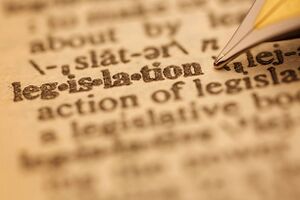May 21st Declaration
This article is incomplete because it is pending further input from participants, or it is a work-in-progress by one author. Please comment on this article's talk page to share your input, comments and questions. Note: To contribute to this article, you may need to seek help from the author(s) of this page. |
| May 21st Declaration | |
|---|---|
 | |
| Presented | May 21st, 1811 |
| Author(s) | Helmuth von Rensselaer |
| Signatories | The Common People of these Territories |
| Subject | Declaration of Independence |
The May 21st Declaration was a document signed by Freijian noble Helmuth von Rensselaer and a dozens of common lay people, effectively becoming Rensselaerswijck's Declaration of Independence and the cutting of ties from the Federal Republic of Freijian on May 21st, 1811. The Declaration preceded a "soft revolution" which would strike the country and depose the colonial administration from the country.
Leadup to the Declaration
Internal Dissent
Mainland Freijian had been unable to properly administer its colonial holdings due to its conquering in the !Napoleonic Wars. With it's mainland capitulated, it led to increased autonomy for the territory which would later become Rensselaerswijck. Internal dissent in the colony rose exponentially as Freijian nobles still enacted their priveleged lifestyle over the vast majority of the population. The addition to few house slaves greatly angered the populace, indigenous and otherwise. The colony of Rensselaerswijck, unlike other colonies, had expanded relations and cooperation with the indigenous population. The indigenous, living side by side with the common Freijian immigrant, made both feel a mutual bond which would later encompass the entire identity of the country.
Both groups eventually grew dissatisfied with the unequal rights being presented by wealthy Freijian nobles. With the lack of a government back home to receive orders, the colonial administration leaned more and more on nobles and the very few oligarchs which were in Rensselaerwijck. This further expanded their privelges, and the giving in to noble influence was seen as a "match which turned the fury against the nobles and against the general notion of the colonial administration."
The Von Rensselaer Family
The von Rensselaer Family was one of the wealthiest noble families in all of the colony, and single-handedly aided in the construction of Nieuw Hoop and other colonies. They had unprescedented influence over the country, owning 45% of all noble land in the colony. Of course, when public opinion shifted heavily negative towards the family and other nobles, they had to act. Unlike the vast majority of other noble families, who ignored the dissent or outright detested it, Helmuth von Rensselaer met with prominent indigenous leaders and low-lying members of the colonial administration. With the government back in the mainland incapable of retaliation at the current time, Helmuth reportedly "saw which way the winds were blowing" and helped write the May 21st Declaration himself, hoping a noble penning the document would grant the movement legitimacy.
The Creation of the May 21st Declaration
Indigenous Rights
Helmuth wanted to make sure that indigenous rights were included in the Document, lest he feared a Native Revolt following issuing the document. He worked closely with chieftons of the Cree and other Alqonguin tribes to formulate articles establishing universal rights for indigenous officials. Such was extreme at the time, but given the already close integration of indigenous peoples, Helmuth thought, the blowback would not be immense.
The Fate of the Colonial Administration
The May 21st Declaration mainly focused on the cutting of ties from Freijian. It held not-so-friendly tones against the government including declaring the entire Colonial Administration "forfeit for betraying the values of the initial colonists whom lay claim to this land." It speciifcally called out colonial officials by name, appearing to demand their immediate exile from the territories or risk imprisonment.
The document famously stated that all priveleges of noble families would be revoked and their assets siezed. This was unexpected by almost all, as many would assume the noble Helmuth himself would detest to such a clause. Upon the publishing of the Declaration, Helmuth's popularity soared among the common people while the Freijian government labelled him as a traitor. He soon became the figurehead for the soft revolution against the Freijian administration.
The Truth of Helmuth von Rensselaer's Motives
Recently, documents have been uncovered which put into light the genuity of Helmuth's ability to part way with his positions. In one document is an unsigned agreement (albeit in Helmuth's known handwriting) which state to a few low-level colonial officials that upon an official treaty of indepenence, if that day were to ever come, that noble lands actually be restored, including his own. But after a hundred years of being portrayed as the "Father of the Revolution," his image as a generous and selfless noble remains engrained into the public to this day.